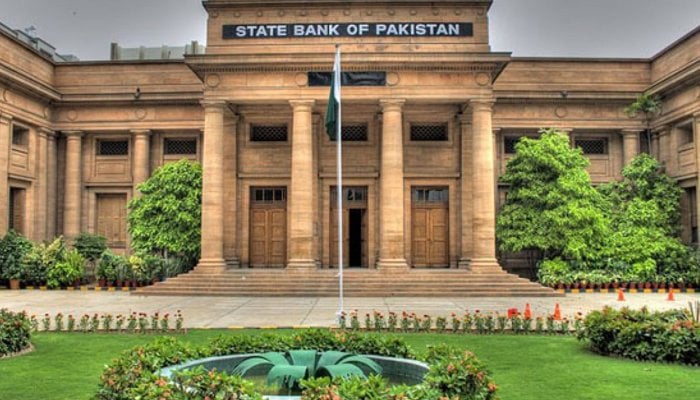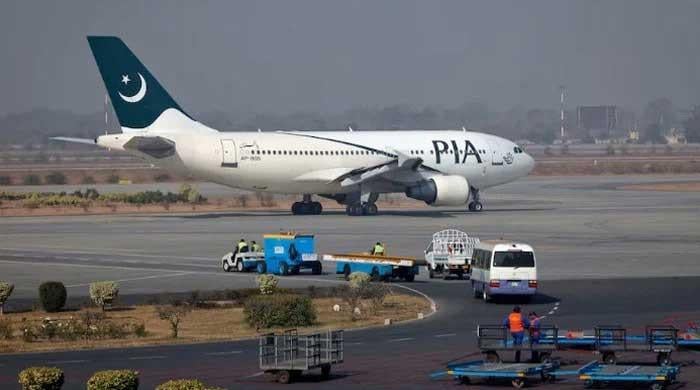Monetary policy: SBP increases interest rate by 25 bps to 7.25%
The interest rate rise caught analysts off guard, many of whom were expecting the central bank to leave the rate unchanged
September 20, 2021

- SBP increases policy rate by 25 basis points.
- The central bank has increased the rate for the next two months.
- Analysts had expected the central bank to notify an increase of 25-50bps in its next MPS scheduled for Nov 26, 2021.
KARACHI: In a surprising move on Monday, the State Bank of Pakistan (SBP) announced an increase of 25 basis points in its benchmark policy rate in a bid to control soaring inflation that has affected the entire economy.
Announcing the bi-monthly monetary policy review, the central bank said the decision to increase the interest rate to 7.25% was taken because the pace of the economic recovery has exceeded expectations,” the statement read.
The central bank said: “With growing signs that the latest COVID wave in Pakistan remains contained, continued progress in vaccination, and overall deft management of the pandemic by the government, the economic recovery now appears less vulnerable to pandemic-related uncertainty.
“As a result, at this more mature stage of the recovery, a greater emphasis is needed on ensuring the appropriate policy mix to protect the longevity of growth, keep inflation expectations anchored, and slow the growth in the current account deficit,” it read.
The statement added that robust recovery in domestic demand, coupled with higher international commodity prices, is leading to a strong pick-up in imports and a rise in the current account deficit. While year-on-year inflation has declined since June, rising demand pressures together with higher imported inflation could begin to manifest in inflation readings later in the fiscal year.
The interest rate rise caught analysts off guard, many of whom were expecting the central bank to leave the rate unchanged.
In its previous policy review on July 27, the central bank had kept the policy rate unchanged at 7% for the sixth time in a row during 13 months. The bank had also hinted at maintaining the benchmark interest rate at the current level in its previous MPS.
However, the central bank said that in line with a shift in the economic outlook, the monetary policy committee (MPC) was of the view that the priority of monetary policy also needed to gradually pivot from catalysing the recovery after the COVID-19 shock toward sustaining it.
“As foreshadowed in previous monetary policy statements, the MPC noted that this rebalancing would be best achieved by gradually tapering the significant monetary stimulus provided over the last 18 months,” it said, adding that the MPC noted that over the last few months the burden of adjusting to the rising current account deficit had fallen primarily on the exchange rate and it was appropriate for other adjustment tools, including interest rates, to also play their due role.
The SBP had aggressively slashed the benchmark interest rate by 625 basis points to 7% from March to June 2020 to minimise the impacts of COVID-19 on the economy. Since then, the SBP has maintained the status quo.
An interest rate is a tool available with the central bank to control inflation, regulate unnecessary rupee movement and give a direction to the national economy.
In its forward guidance for the next MPS scheduled for November 26, 2021, the SBP said: “The MPC noted that the stance of monetary policy is still appropriately supportive of growth, with real interest rates remaining negative on a forward-looking basis.”
“Looking ahead, in the absence of unforeseen circumstances, the MPC expects monetary policy to remain accommodative in the near term, with possible further gradual tapering of stimulus to achieve mildly positive real interest rates over time,” the statement read.
The pace of this possible further gradual tapering would be informed by updated information on the continued strength of demand growth and the stance of fiscal policy, amongst other factors.
Analysts believe that the central bank of Pakistan will notify an increase of 25-50 basis points in its next MPS.









